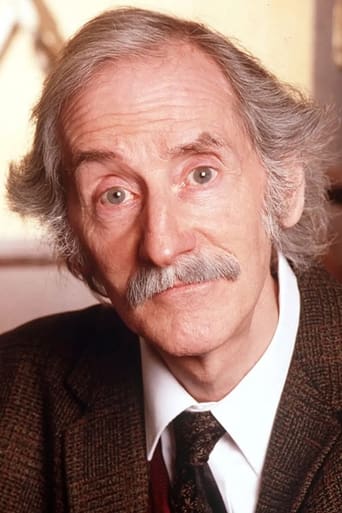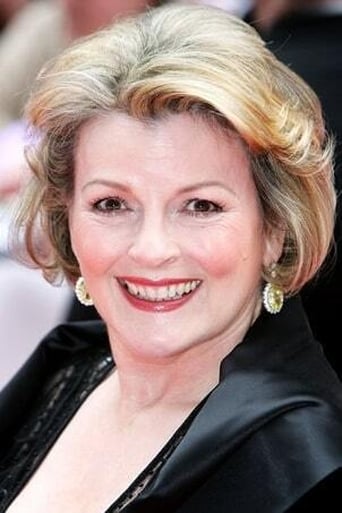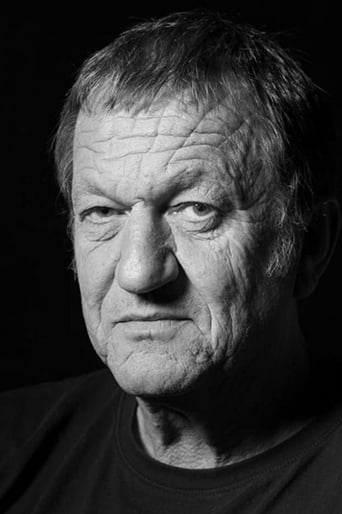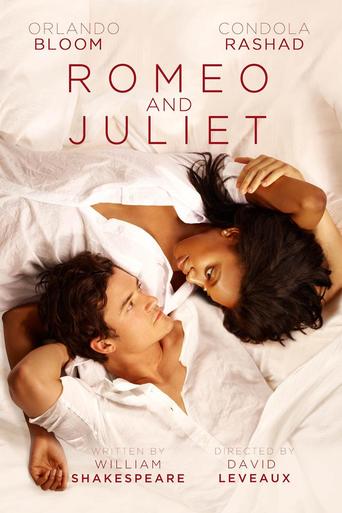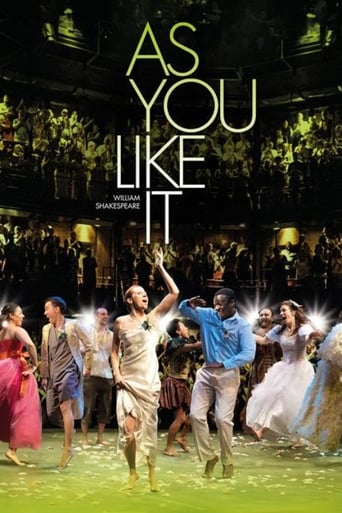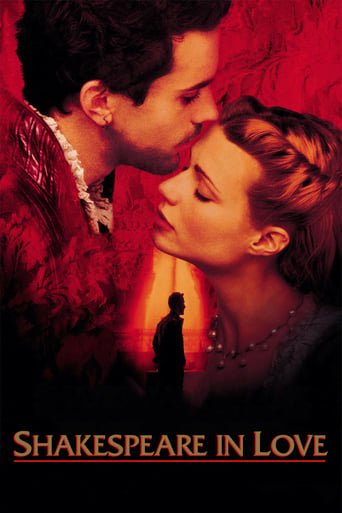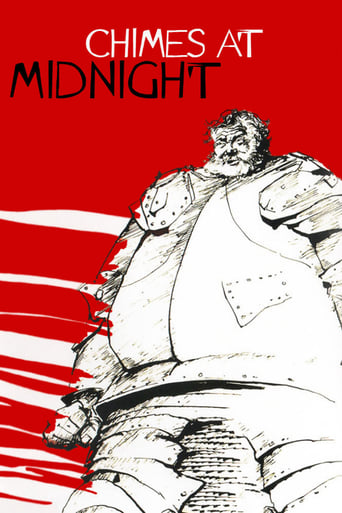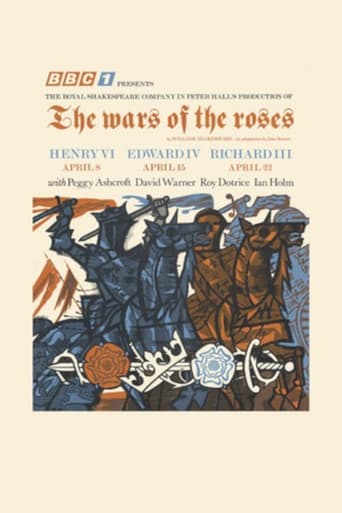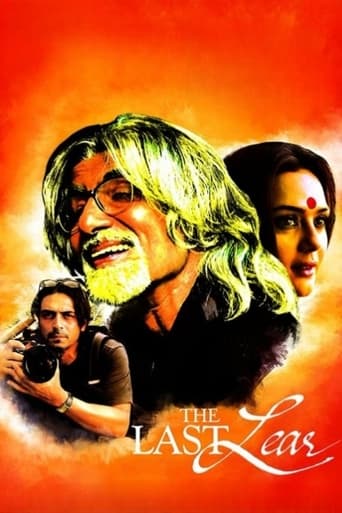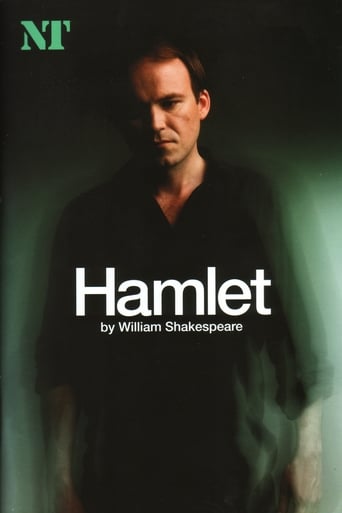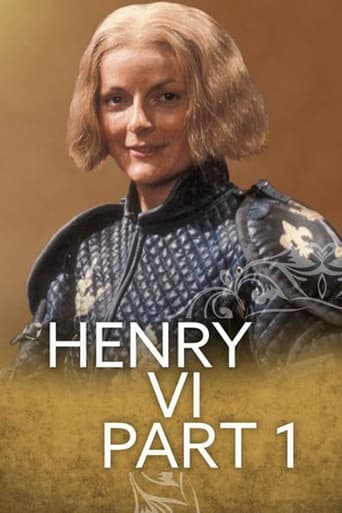
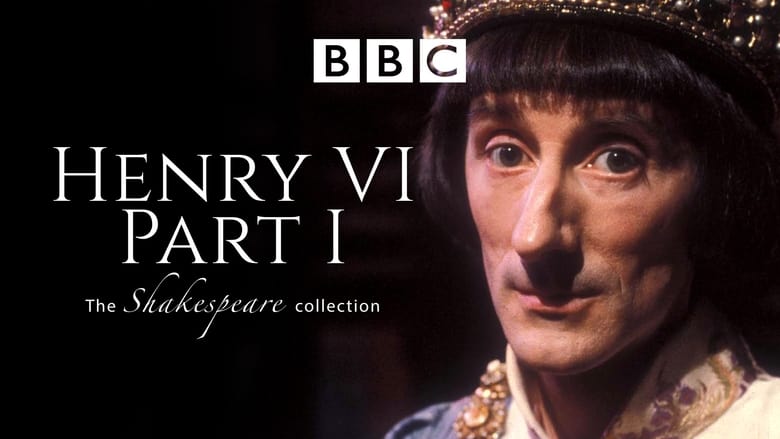
Henry VI Part 1 (1983)
The life of King Henry the Sixth, in three parts.
Watch Trailer
Cast
Similar titles
Reviews
I like the storyline of this show,it attract me so much
Sadly Over-hyped
Just what I expected
Fun premise, good actors, bad writing. This film seemed to have potential at the beginning but it quickly devolves into a trite action film. Ultimately it's very boring.
Absolutely hooked, a real page-turner. Each scene is a gem and I really can't see how anyone could portray Henry VI better than Peter Benson. Your heart just aches for him. Brenda Blethyn is also excellent as a cunning Joan of Arc (and her accent is a Yorkshire one - not Cockney as a previous poster has claimed). The reason for this - I assume - is to portray her humble origins to an English audience. Her fight scene with Trevor Peacock's Talbot had me rolling in the aisles, " I'll chastise this high-minded strumpet!" I also like the simple set, which makes the complex story easier to follow. Better than Footballers'Wives as far as mass market entertainment goes.
The four plays Shakespeare wrote about the Wars of the Roses is capped by the very famous Richard III. But Richard, taken literally, doesn't make much sense unless one is familiar with aspects of the previous three plays, which deal with the reign of Henry VI.The series of Henry VI plays presented in the BBC's Complete Dramatic Works of William Shakespeare boasts a powerhouse ensemble cast, including but not limited to: Trevor Peacock, Frank Middlemass, Bernard Hill ("Lord of the Rings"), David Burke (Brett's Watson in "The Adventures of Sherlock Holmes"), Mark Wing-Davey ("The Hitchhiker's Guide to the Galaxy"), Tenniel Evans ("The Navy Lark") and Ron Cook ("Topsy-Turvy") who goes on to play Richard III.These Henry VI plays are presented in bare-bones style, probably reminiscent of the way they were done on stage at the Globe Theater four hundred years ago.This may have been dictated by financial straits. Or it may have been inspired by the Royal Shakespeare Company's successful nine-hour "Nicholas Nickleby" -- which was never boring.It may also reflect a lack of respect for the source material (even the best actors in this series don't resist the urge to mug and leer and overplay; Julia Foster's Margaret is particularly grating on the nerves -- which is too bad, since once Margaret steps on the stage she dominates Henry VI).Whether because of money or a lack of respect -- or even perhaps because the people who made them had fundamental misunderstandings about them -- this presentation grows quickly tiresome. If they thought they were doing something clever, they weren't.It's too bad. The Henry VI plays are not often presented, and the only other notable version done for television and out on DVD (that I know about) is the 1960s series "The Age of Kings", which does all eight plays between Richard II and Richard III in one-hour formats (I think they were live, so the actors are reciting Shakespeare against the clock)."The Age of Kings" also, due to the limitations of budget and especially the limitations of the television medium at the time, did necessarily stagy productions. The actors of the '60s series (including a young Sean Connery as Hotspur) do their best at just finding their t.v. marks within phony backdrops that seem ready to collapse on them.It's too bad that the Henry VI plays done by the BBC twenty years later, as part of the Complete Dramatic Works, could not have been opened out like some of the other plays in this series (i.e."As You Like It" or "Henry VIII"). If they had to be done on interior sets, they were worthy of a better design (like "Twelfth Night" or "Much Ado About Nothing" -- even "The Merry Wives of Windsor", a perfectly lousy play with perfectly wonderful sets!) And the material should have been treated with more respect. Not because it's "Shakespeare" as a name to conjure with. "They" knew when they started this complete series of the plays that they were to be something of a touchstone. It's all right to experiment with the more well-known plays; no series could boast "the standard" version of Hamlet or Julius Caesar. But the little-known plays, which most people simply will never see in their lifetimes anywhere else, should have been trotted out in their Sunday best. This includes these Henry VI plays. The Henry VI plays should at least have the interest of a soap-opera -- which is basically what it is. It's a soap with a martial setting. Instead, it's just a confusing lot of sound and fury, signifying, in the long run, nothing.I don't know where the blame lies. It may be Jonathan Miller, or it may be the director. Perhaps the BBC showed them their empty pockets and told them to do their best. Or maybe no one cared about these plays enough to present them with the respect they deserved.Like the 1960s series "The Age of Kings" this version of the Henry VI plays had a lot of very good actors (some of whom I have seen performing better with less) ultimately unable to capture a willing suspension of disbelief.One revelation was Mark Wing-Davey's Warwick. He's looks too young (Warwick was in his forties and Wing-Davey's in his thirties), but he does a magnificent job in the first performance I'd ever seen where he only has one head.The Henry VI series has other high spots, but taken at a whole it's unnecessary strident; and it's especially wearying since the Henry VI plays are all very long (or does it just seem that way?) and have a lot of characters who are not adequately described. I followed along in my Arden.Unfortunately, "The Age of Kings" eviscerated Henry VI, Part I, so this particular version is best chance most people will have of seeing the bulk of Henry VI, Part I. We who don't live with an easy access to Stratford have to take what we can get.
Opinion is divided as to whether William Shakespeare's King Henry VI, Part 1 is the first-composed of a three part series or a prequel to a two-part play written earlier. There is also speculation that the play was written in part by other authors or not by Shakespeare at all (mostly because of its vicious treatment of Joan of Arc), but that kind of speculation is not limited to this particular play. Ratcheting up the feeling of patriotism after the defeat of the Spanish Armada in 1588, William Shakespeare's King Henry VI, Part 1 is unabashed Tudor propaganda and a reflection of the Lancastrian point of view. As a propaganda tool, it is meant not only to unite England behind Queen Elizabeth against foreign threats but to remind the English that a house divided against itself cannot stand.Covering English and civil affairs toward the end of the Hundred Years War, Part 1 covers events from the funeral of Henry V in 1422 to the death of Lord Talbot in France at the Battle of Castillon in 1453 and concludes with the marriage of the young King Henry VI to Margaret of Anjou. It has been pointed out that this play, as well as other history plays, present a muddled view of history, and most do not credit Shakespeare with using Holinshed and Hall's Chronicles as anything but a tool to further his dramatic imagination. In fact, Shakespeare may have rearranged the chronology of events so convincingly that today his versions of history are often mistaken for what actually occurred.Marred by ludicrous casting decisions in the BBC Time-Life version from 1983 that put the 64-year-old Peter Benson as the 21-year-old King Henry VI and Brenda Blethyn, a 37-year old British actress with a pronounced Cockney accent as the 19-year-old French peasant warrior Joan of Arc, Jane Howell's film version of King Henry VI, Part 1 is true neither to accepted history nor to Shakespeare's vision. Since the King was a young man, the BBC moguls concluded that he must have been soft spoken, effete, and ineffectual and Peter Benson was chosen as the man for the job. Likewise, Ms. Blethyn portrays Joan of Arc as a prostitute and a witch, the way Shakespeare wrote her character.When she is captured and brought to trial, she denies her common-born father saying she was conceived of richer blood, and then argues that she is a virgin, and then that she is pregnant, finally attempting to name three different fathers. Joan's dramatic entry into the war at Battle of Orleans is considered a turning point for the French and she was ripe fodder for English writers until the time she was canonized in 1920. Though in many respects this particular performance leaves much to be desired, there is some masterful writing, especially in the Temple Garden scene when York and Somerset declare war on each other, and, even in this much maligned production, there is much to be esteemed.
The BBC TV Shakespeare hadn't a lot to spend on settings, and none could be more basic than this, with rickety doors representing the gates of Orleans and other cities. There's also a lot of doubling, which means that, e.g., Tenniel Evans as the French general reappears within seconds as the brave Duke of Bedford. Yet the complex plot is unravelled with wonderful clarity, thanks to fine speaking which does full justice to the young Shakespeare's verse, shrewd casting and Jane Howells' spirited direction. Trevor Peacock's staunch Talbot, Frank Middlemass's baleful Wichester/ Cardinal Beaufort and David Burke's sturdy Gloucester, Lord Protector, stand out. Joseph O'Conor, veteran Derek Farr and Bernard Hill are excellent, and if Brenda Blethyn as Joan La Pucelle is too much the pantomime principal boy, she goes movingly to her terrible end. Peter Benson seems rather old for the supposedly youthful King Henry, but speaks beautifully. I can hardly wait for Part 2 (like this, now available on DVD).
